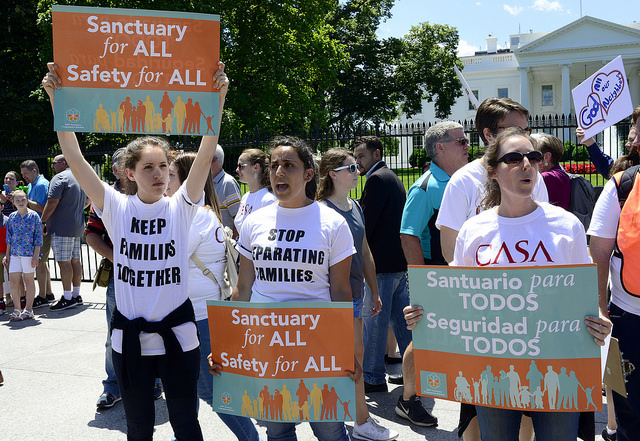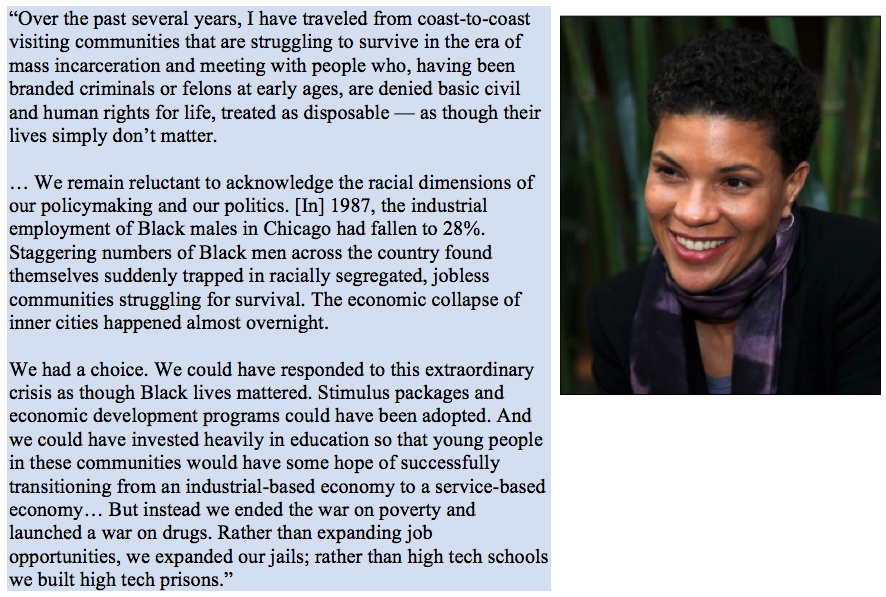Blog
Family Separation in America Goes Beyond Immigration Policy

The issue of family separation has grabbed national headlines and public attention, as we have all witnessed the adoption and subsequent resistance against inhumane immigration policy.
The images of screaming babies being ripped from the hands of peaceful asylum seekers who fear for their lives and livelihood has impacted many of us viscerally, and the public outcry had an impact, even if temporary, on the practice of separating families at the border. We must continue to stand with our brothers and sisters from other nations that are fighting for their human rights to life, liberty and the pursuit of happiness.
We also have an opportunity to use this moment and the power of our collective passion to fight against the family separation that has become commonplace in America over the past several decades, often unnoticed and without the same passion and resistance. Any time that an adult or child is incarcerated through the criminal justice or juvenile justice systems families are being separated.
Over the past several decades the population of incarcerated individuals has sky-rocketed, even while violent crime has significantly decreased. According to the Bureau of Justice Statistics, over 1.5 million people were being held in state or federal prison at the end of 2016, a number that has been slowly declining over the past several years. Around half of the prisoners are serving time for non-violent crimes, including drug trafficking. Additionally, Child Trends estimates that at any given time, nearly 53,000 youth are being held in facilities (including settings other than residential placement) due to involvement with the juvenile or criminal justice system, and up to 70% of children held are experiencing mental illness.
When we lock up adults or children for nonviolent crimes, instead of showing compassion for their situation and a productive path forward, we are separating families. The children of those adults that are locked up, go to school every morning without the love and care of their parents. Those children’s lives and opportunity to learn and thrive are impacted by diminished household income, family instability, and toxic stress and separation anxiety, all of which will directly impact their academics, health and general wellbeing for the rest of their lives.
Treating individuals, even those that have committed nonviolent crimes, as if they have no right, even temporarily, to love and care for their family, is inhumane. And we do this all day, every day, to millions of Americans and prospective American citizens, particularly low-income individuals and people of color who face bias and barriers throughout the system.
Instead, we need to adopt Loving Systems. Systems that take individual circumstances into consideration and create access to supports and rehabilitation that keep families together and enable them to thrive. Taking a loving, compassionate approach to criminal justice can positively impact broader societal outcomes, including graduation rates and mental and physical health because these issues are all intertwined.
In Schott’s Black Male Report, Michelle Alexander, Associate Professor of Law at Ohio State University and Author of The New Jim Crow: Mass Incarceration in the Age of Colorblindness, explains the choices we have made that led to the massive expansion of our incarceration systems, and the choice we could have made then, and must make now:

We can make a different choice now. We can choose to implement a system of care, compassion and love, rather than a system of hate, racism and “zero tolerance”. To truly make this choice a reality, we need to stand up as a unified people and demand comprehensive changes to our criminal justice and immigration systems, so all children and families can have the opportunity to learn and thrive.
Looking for resources and ways to get involved? Here are a few examples of ways you can fight for love and compassion with links to resources and community-led initiatives demanding reform:
- Fight back against violent, hateful immigration policy: United We Dream is the largest immigrant, youth-led network, and provides a range of resources for immigrants and allies, as well as ways to get involved in the movement.
- Institute culturally responsive education and anti-bias training in schools: Zero-tolerance policies and other damaging punitive discipline approaches in schools used largely against students color have created a school-to-prison pipeline that criminalizes Black and Brown bodies from as early as pre-school. Click here to learn how parents in the Coalition for Education Justice have worked together to make Culturally Responsive Education a reality in NYC schools.
- Expose Corporate Backers of Hate: On Make the Road’s website backersofhate.org, find information on the nine corporations that stand to profit from the criminalization of Black and Brown bodies, and use the links to send messages directly to companies demanding change in policies and investments.


